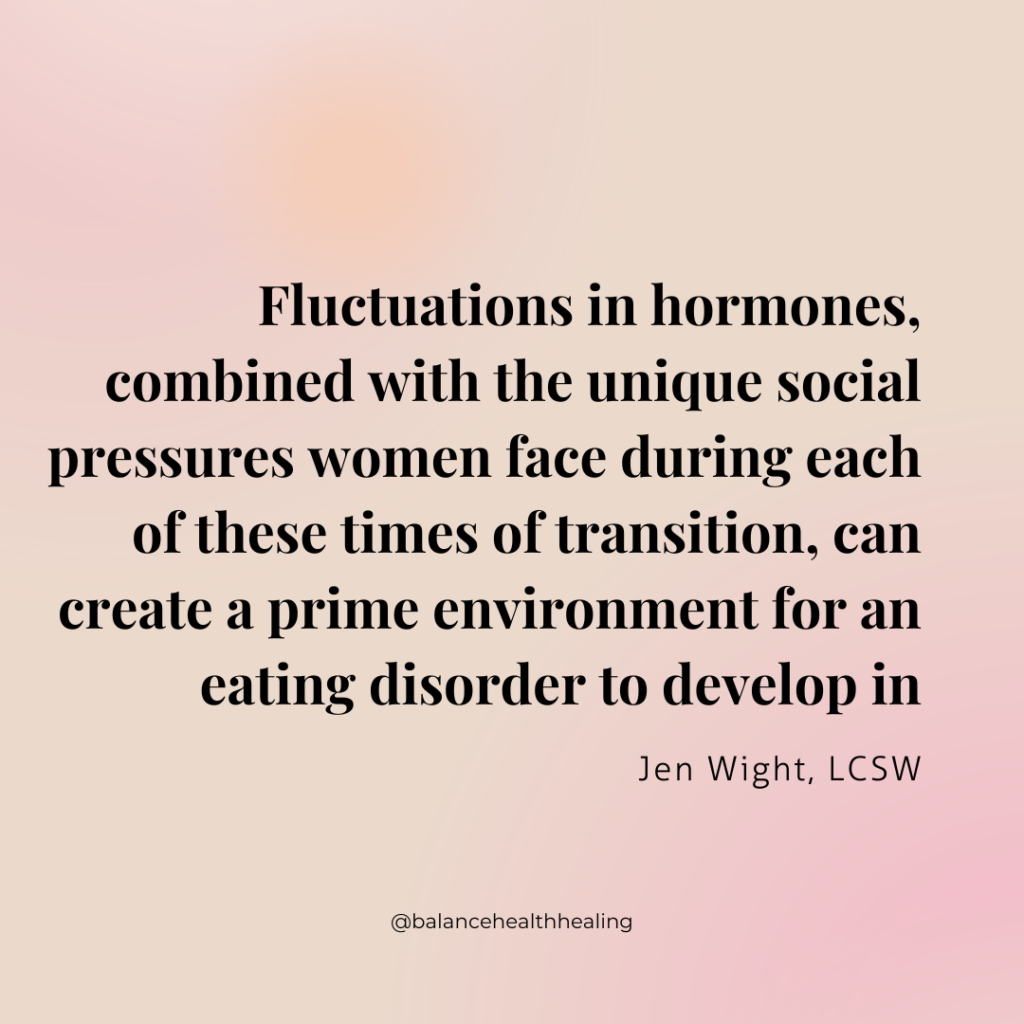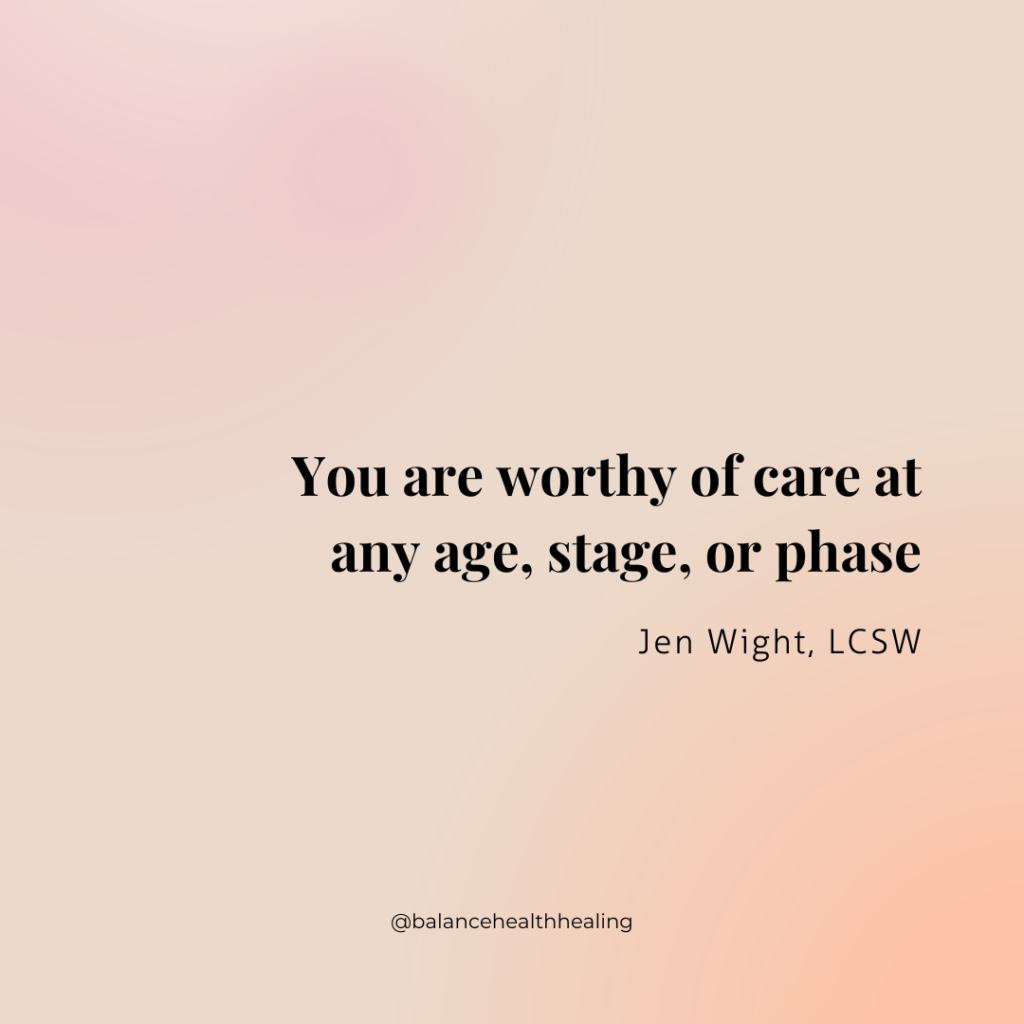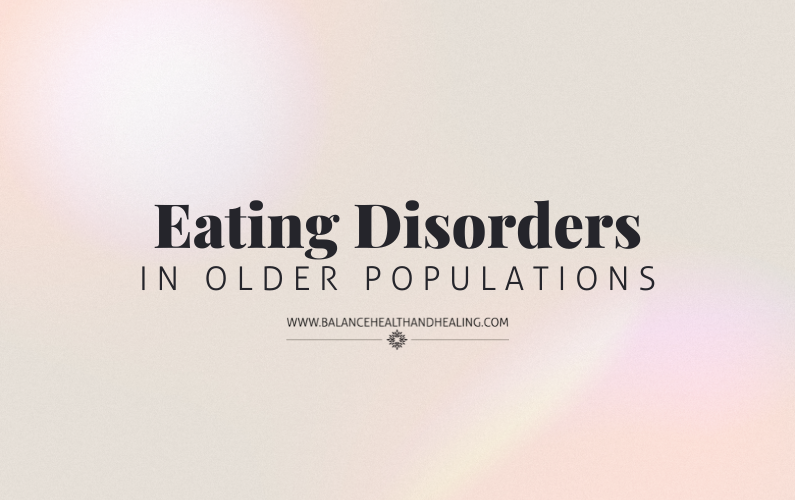Surprising research shared by Harvard Medical School is highlighting the risk for eating disorders over a lifespan. While eating concerns were once considered something impacting a more youthful demographic, research continues to shine a light on the impact of eating concerns in those middle aged and older.
But what would drive an eating disorder to reemerge or even begin as a person ages? 
“The importance of body image seems to be a key feature that makes women either return to or start an eating disorder,” says Dr. Bettina Bentley, a primary care physician at Harvard University Health Services. “With aging, many women are also disturbed by the lack of control over the ways their body is changing.”
As we age, our bodies undergo changes that we may find difficulty coping with. Aging can also bring up unresolved or even new issues surrounding body image. During menopause, women often gain weight, and these changes might make you feel like your body is working against you or is uncomfortably out of your control.
Interestingly, some researchers are noticing that eating disorders peak for women during critical periods of reproductive hormone change, like puberty, post pregnancy, or menopause. These fluctuations in hormones, combined with the unique social pressures women face during each of these times of transition, can create a prime environment for an eating disorder to develop in.
While an eating disorder brings immense risk at any age, there are special concerns in older populations. Women with anorexia are seven times more at risk of a bone fracture than the general population, for example. Middle aged populations are also more likely to be on medication for chronic conditions, which increases the risk of complications when engaging in disordered eating. Other unique concerns to this population include an increased risk of pneumonia for those who force themselves to vomit and poor wound healing due to improper nutrition.
If you find yourself beginning to fixate or feel intrusive thoughts about body image or eating concerns as you age, know that you aren’t the only one! You are worthy of care at any age, stage, or phase. If you find your body is changing, you are capable of changing with it, and learning healthy ways to respond to your new needs.
Reference:
https://www.health.harvard.edu/womens-health/eating-disorders-in-midlife

